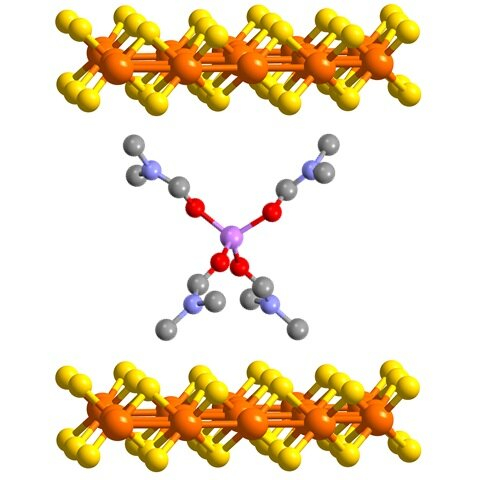A much more efficient and also sustainable battery for a more 'electrified' society
- An assistant professor in the department of chemistry at the University of Chicago, John Anderson, BS/MS '08, has patented a material that can store as well as produce energy a lot more effectively and sustainably than current approaches.

The trademarked iron sulfide-based material is made in either a bulk powder or as a thin film deposited on a substratum product.
The scientists had an interest in finding new products that offer either boosted performance or lower prices for energy storage space schemes, claimed Anderson. This consists of electrodes used in supercapacitor tools, such as electrical vehicles, to name a few. The electrodes can likewise be used in lithium and sodium batteries for digital devices and also have applications in grid energy storage space.
" What's interesting regarding our exploration is that we can take a material that has been explored, iron sulfide, as well as structure it into nanosheets. These nanosheets need to allow much faster as well as much more reversible butting in battery applications," Anderson clarified.
A proof-of-concept has actually been demonstrated via laboratory synthesis. The instant applications are utilizing this as a cathode, potentially in sulfur batteries. If maximized, the products could be solid-state electrolytes or cathodes for a range of batteries.
As for the next actions, the most significant hurdle right now is raising the stability of the materials-- which will be very important for any type of applications, he said.
" As society becomes increasingly electrified, there will be more and more need for batteries, and hence the raw materials that comprise them," included Anderson. "What's exciting about this study is that our material is composed of 2 of the most inexpensive and also most abundant aspects in the world: iron and sulfur."
According to BloombergNEF's New Energy Outlook 2020, a lasting scenario evaluation on the future of the energy economic situation, worldwide power ability virtually triples in between 2019 and also 2050.
Lithium-iron phosphate will certainly continue to be in high demand due to its use in industrial electrical lorries, electrical buses, as well as fixed storage space, the report kept in mind, including that this will call for "a remarkable increase in battery production capability as well as supply of resources."
Furthermore, per the report:
- Battery demand reaches 2 terawatt-hours by 2030, up from less than 230 gigawatt-hours in 2019
- Renewables increase from 35% in 2019 to 68% in 2050
- Fossil-fuel power capability goes down to 24% in 2050, from 56% in 2019
Anderson is working to create basically new and turbulent materials to recognize remarkable enhancements in battery performance and expense. His research study concentrates on developing not natural artificial chemistries to fix problems relevant to nature, energy, as well as brand-new materials.
" The future of energy storage is going to depend on brand-new battery technologies. In spite of this, the basic materials we are using for batteries are decades old," Anderson kept in mind. "While these products have been extremely enhanced for outstanding performance at this moment, there is still a basic restriction to battery efficiency that is imposed by their composition."
